Crazy Idea: Let’s Read the Gospels This Month
Yes, All of Them. Here’s the Plan.
Ten years ago on the Tim Ferriss podcast, philosopher and bestselling author Sam Harris shared his list of books everyone should read. He admitted assembling such a list was tough. “There are just so many good books in all my areas of interest,” he said.
Despite the difficulty, he recommended several, including The History of Western Philosophy by Bertrand Russell and Thomas Nagel’s early work. But strangely, though he’s an outspoken atheist with a professional and personal interest in religion, Harris offered nothing specifically on Christianity.
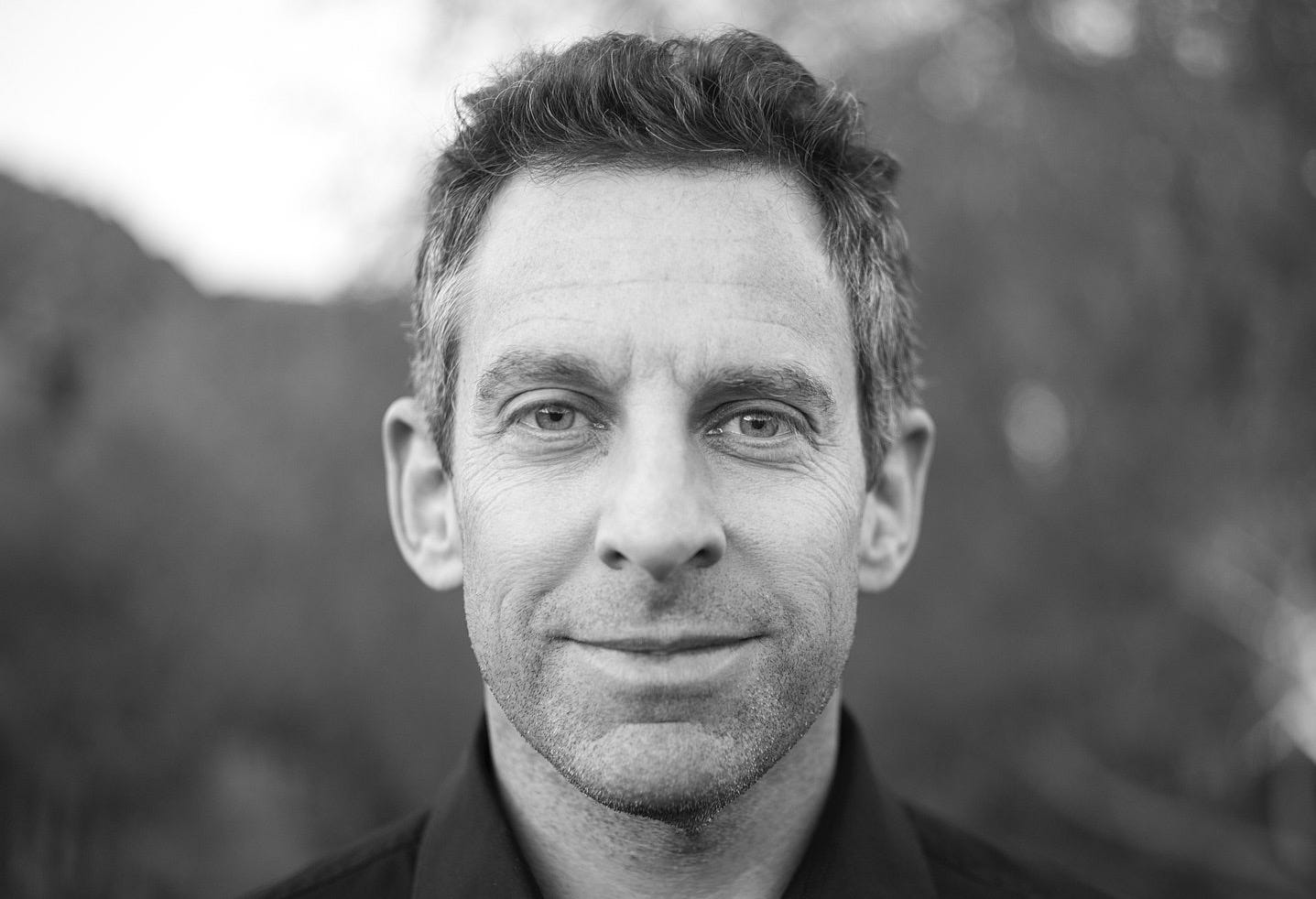
Harris did recommend the Qur’an. “It’s much shorter than the Bible; you can read it in a weekend,” he said, adding, “it’s good to be informed, given how much influence these ideas have currently in our world.” I appreciate Harris and his work and have nothing against reading the Qur’an—by all means, do—but if it’s a question of influence, Harris has steered us wrong.
Though the sway of Islam is strong and warrants attention, Christianity far outstrips it in terms of influence on the contemporary world, particularly in Western countries. That goes for both Christianity’s foundational influence on Western thought and institutions and its residual influence in even the most secularized of societies.1 Harris’s fellow nonbeliever and member of the much feared Four Horsemen of the New Atheism, Richard Dawkins, appreciates the point well enough to unironically label himself a “cultural Christian”; a person doesn’t have to embrace the faith to live in a world shaped by it.
It seems to me Harris’s oversight deserves a small and belated correction. But how? Here’s my recommendation.
My friend and colleague Hannah told me last week that she planned to read through the gospels in September. I sat with the idea over the weekend and have decided to jump aboard. I mentioned the decision in a Note on Monday, and several folks seemed to resonate with the idea. Personal faith isn’t required for the project. In fact, if we think of Christianity’s role in shaping the Western experience of being human—whether we like or dislike the outcome—it probably behooves us all to be somewhat familiar with the its foundational text(s): the four canonical accounts of the life and ministry of Jesus of Nazareth.
It turns out it’s a light lift. The four gospels (Matthew, Mark, Luke, and John) boast just 89 chapters in all. At three chapters a day, give or take, you can read through the whole lot in a month. And so I’d like to extend an invitation to you, whether you’re a person of faith or not. Want to read along?
Here’s a simple plan, assuming we start today, September 3. Given the fact that we’re a few days into the month already, this plan sprinkles some extra chapters here and there to reach the end before October 1; I’ve flagged those days below so you can gird your loins if need be.
Sept 3: Matthew 1–3
Sept 4: Matthew 4–6
Sept 5: Matthew 7–9
Sept 6: Matthew 10–12
Sept 7: Matthew 13–15
Sept 8: Matthew 16–18
Sept 9: Matthew 19–21
Sept 10: Matthew 22–24
Sept 11: Matthew 25–28 (4 chapters)
Sept 12: Mark 1–3
Sept 13: Mark 4–6
Sept 14: Mark 7–9
Sept 15: Mark 10–12
Sept 16: Mark 13–16 (4 chapters)
Sept 17: Luke 1–3
Sept 18: Luke 4–6
Sept 19: Luke 7–9
Sept 20: Luke 10–12
Sept 21: Luke 13–15
Sept 22: Luke 16–18
Sept 23: Luke 19–21
Sept 24: Luke 22–24
Sept 25: John 1–4 (4 chapters)
Sept 26: John 5–7
Sept 27: John 8–10
Sept 28: John 11–13
Sept 29: John 14–17 (4 chapters)
Sept 30: John 18–21 (4 chapters)
What Bible should you use? Chances are good you’ve got one handy. (Most American households do, as it happens.) Nothing wrong with starting there, and pretty much any translation will do. You can also try one of countless online versions. Bible Gateway is a decent place to go with many translations to choose from, and the English Standard Version has an easily navigable website.
As for me, I’ll be reading my Holy Gospel, published by Saint Ignatius Orthodox Press. It has a beautiful single-column typeset, ideal for easy reading.
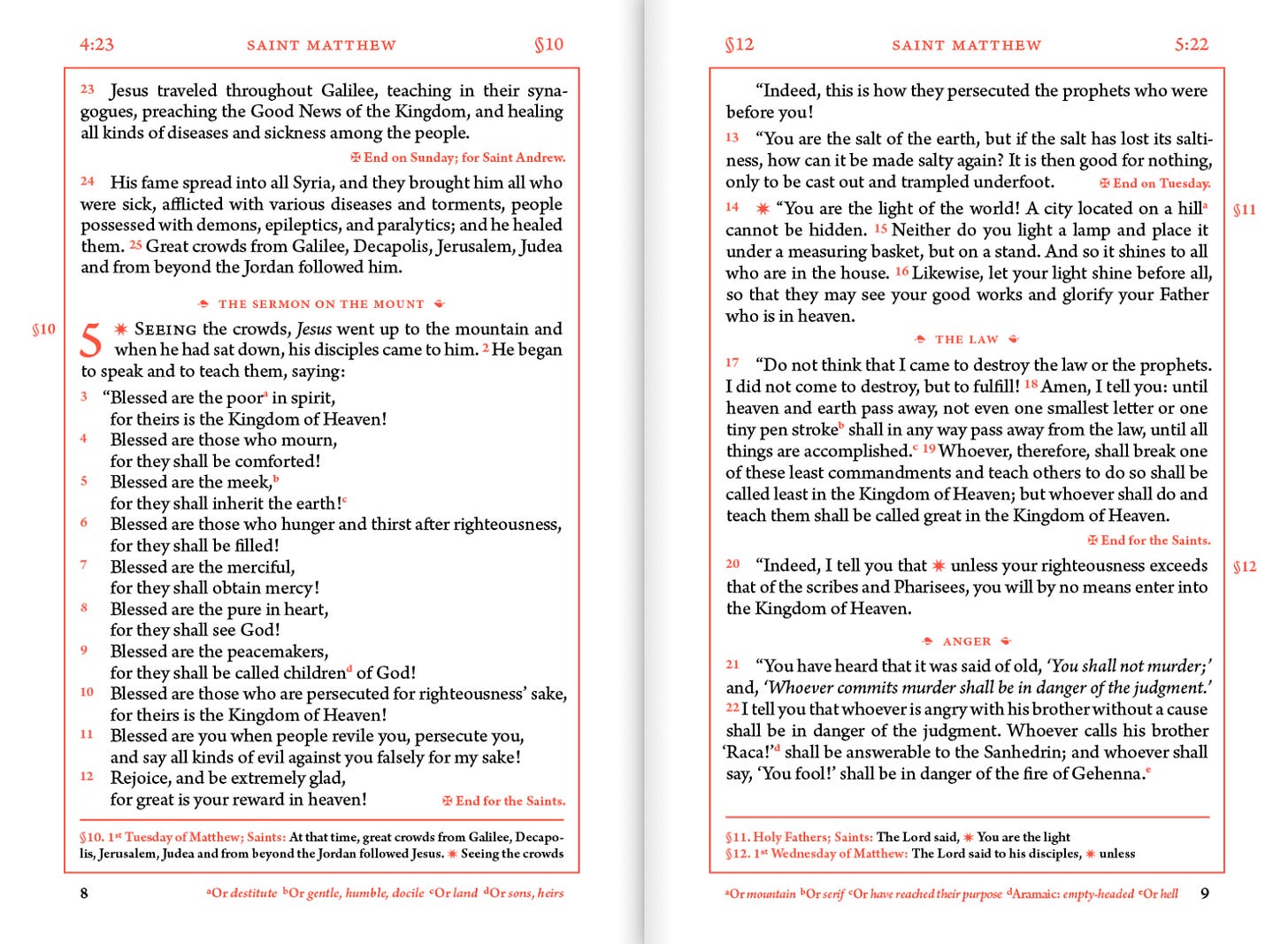
Here are a few more suggestions along those same lines.
Crossway used to publish a standalone volume of the gospels in an elegant single-column layout called the Reader’s Gospels; basically it’s like reading a novel. They also produced a version with the gospels individually bound. Bitchin, amirite? The only problem for this project is that they don’t have chapter numbers, but the solve is easy: you can just divide the pages by the days, and you’re good to go. Alas, both editions are now out of print, but you can still pick them up secondhand.
Magnificat produces an elegant gospel collection called The Illustrated Gospels, so titled because each gospel is festooned with medieval illuminations. It uses the Revised Standard Version (Catholic Edition). It’s also a gorgeous book and very well made.
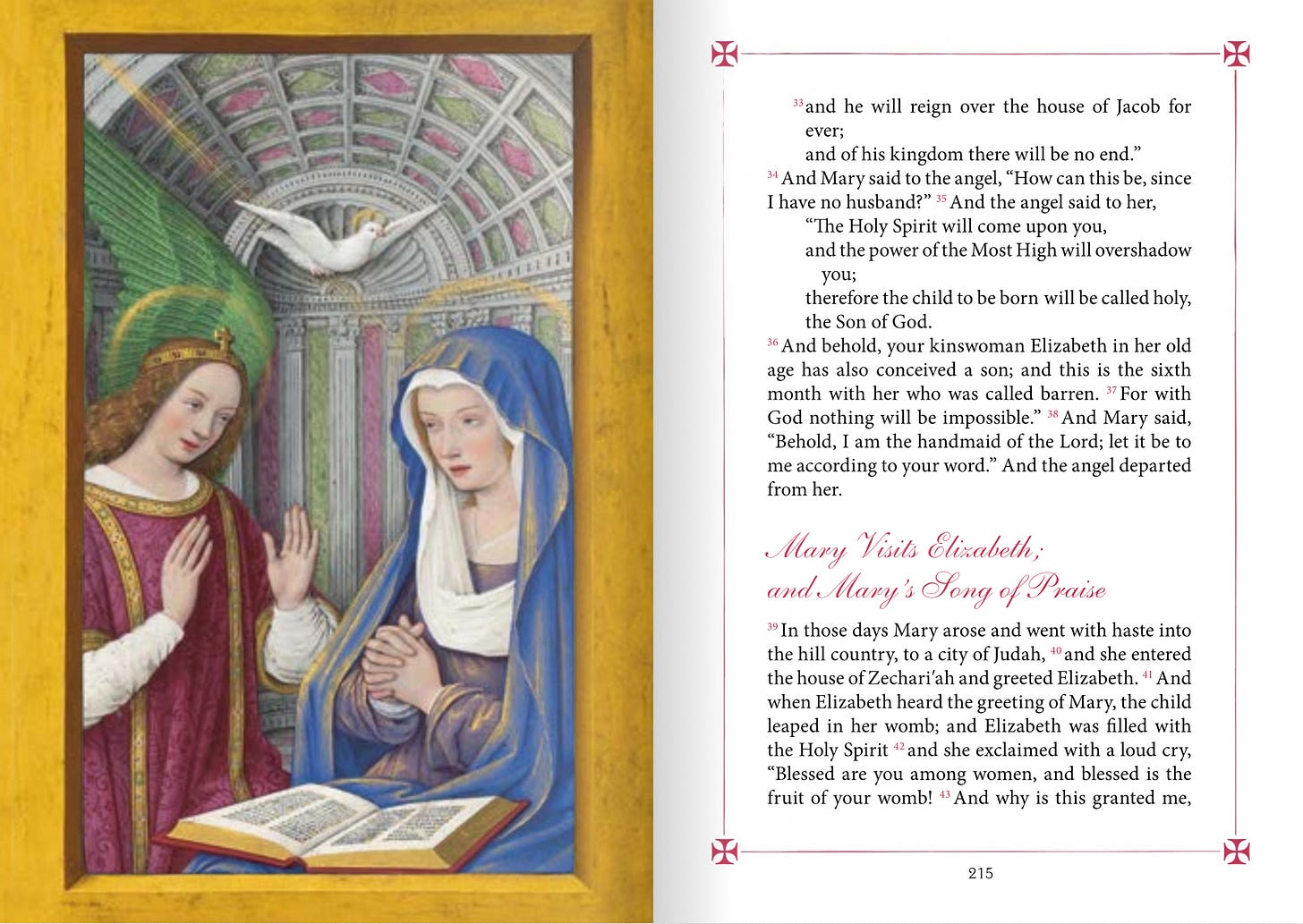
Classicist Sarah Ruden offers another intriguing option. Known for her translations of Vergil’s Aeneid and Apuleius’s The Golden Ass, Ruden presents the four gospels in fresh dress and renders them delightfully alien by such means as retaining Greek spellings for names and places; the effect is simultaneously both familiar and unfamiliar. To wit, the beginning of “Loukas” 2 in her translation:
It happened in those days that a decree came out from Kaisar Augoustos that the entire inhabited world must be registered. This registration first happened when Kurēnios was governor of Suria. And everyone traveled to be registered, each one to his own town. And lōsēf too went up from Galilaia, from the town of Nazareth, to loudaia and the town of David that is called Bēthle’em—because he was from the house and lineage of David—to be registered, along with Mariam, who was betrothed to him, and who was pregnant.
Ruden freights the bottom of each page with explanatory notes, not only for her translation choices but also geographical details and contextual information and callbacks to the Hebrew Scriptures, filling out the picture where modern readers might otherwise come up short.
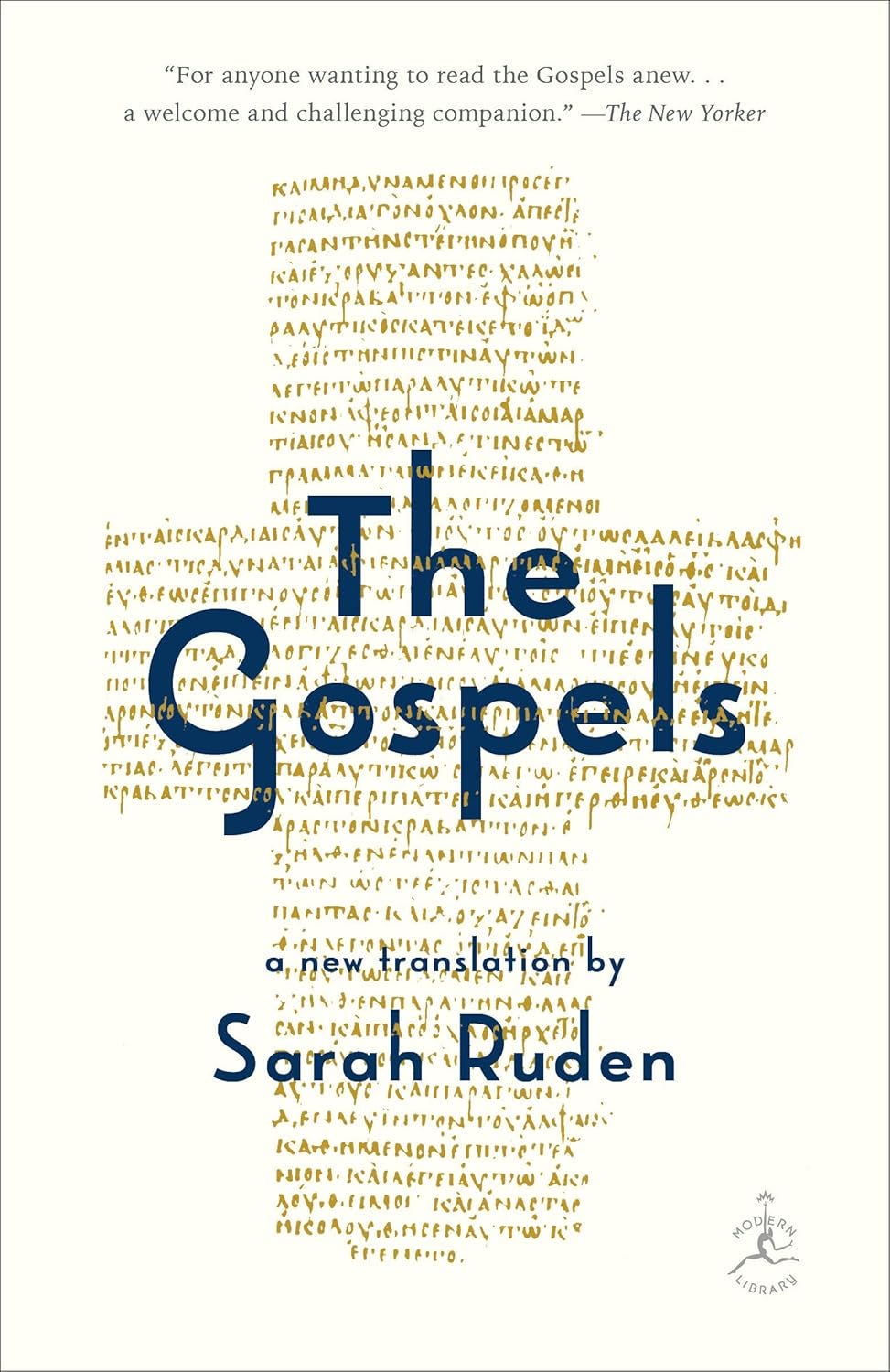
Another possibility? David Bentley Hart’s translation of the New Testament (Yale University Press, 2023). For what it’s worth, Hart channels our recent exploration of good and bad translations, signaling strong disapproval of Ruden’s efforts. “It’s just very bad,” he said in a conversation with economist Tyler Cowen last year.
I just think it’s barely literate . . . very inaccurate. She’s done other translations that are quite wonderful. Her translation of Augustine is the best in modern English. But I think her insistence on translating philologically in the sense of taking the meaning of words from their roots and doing other things of that sort all the way through was horribly ill-advised.
I think she also just doesn’t know the period very well. She’s a classicist in one sense, but late antiquity and certainly Second Temple Judaism and late antique Christianity are just not in her wheelhouse, and there are just so many things that she gets wrong. I just think it reads exceedingly badly. I agree with Luke Timothy Johnson, who, with all the goodwill in the world, just described it as a mess.
I don’t know. I liked it! I also like Hart’s. Then again, my opinion is worthless. I’m the furthest thing from an expert. So are most of us. My take is that we can probably get by reading whatever is nearest to hand, springing for something new to mix it up if that sounds appealing.2
Such a plan—reading the gospels straight through in 30ish days—seems a simple start to addressing Harris’s underweighting of Christianity’s civilizational influence.
If you want to go further and jump into the historical question of just how instrumental Christianity has been for the formation of the modern world, I can recommend several additional books pulled off my shelf just now. Here’s a sampling for anyone interested in understanding the role of Christianity in shaping our world:
Niall Ferguson, Civilization: The West and the Rest (Penguin, 2011).
Michael Allen Gillespie, The Theological Origins of Modernity (Chicago University Press, 2008).
Brad S. Gregory, The Unintended Reformation: How a Religious Revolution Secularized Society (Belknap, 2012). And while you’re at it, see Gregory’s Rebel in the Ranks: Martin Luther, the Reformation, and the Conflicts that Continue to Shape Our World (Harper, 2017).
Edward Grant, The Foundations of Modern Science in the Middle Ages: Their Religious, Institutional, and Intellectual Contexts (Cambridge University Press, 1996).
Richard Hannam, God’s Philosophers: How the Medieval World Laid the Foundations for Modern Science (Icon, 2010).
Theo Hobson, God Created Humanism: The Christian Basis of Secular Values (SPCK, 2018).
Tom Holland, Dominion: The Making of the Western Mind (Little, Brown, 2019).
Larry W. Hurtado, Destroyer of the Gods: Early Christian Distinctiveness in the Roman World (Baylor, 2016).
Michael Massing, Fatal Discord: Erasmus, Luther, and the Fight for the Western Mind (Harper, 2018).
Alister McGrath, Christianity’s Dangerous Idea: The Protestant Revolution—A History from the Sixteenth Century to the Twenty-First (Harper, 2007).
Colin Morris, The Discovery of the Individual, 1050–1200 (University of Toronto Press, 1987).
Larry Seidentop, Inventing the Individual: The Origins of Western Liberalism (Allen Lane, 2014).
Rodney Stark, The Victory of Reason: How Christianity Led to Freedom, Capitalism, and Western Success (Viking, 2005).
Overkill? Probably. And there are dozens (hundreds?) more. If you’re really crazy, you can likely cram all that into September as well. I don’t recommend it. Think of it like a menu. Grab whatever looks interesting, but only if you have an appetite.
Ayaan Hirsi Ali got the memo, apparently. Back in 2015, Harris recommended her memoir, Infidel, in his list. The book tells the harrowing story of Hirsi Ali’s brutal, fundamentalist Muslim childhood and her ultimate rejection of religion and embrace of secularism and liberal values. Then, to the surprise of pretty much anyone awake for the last decade, Hirsi Ali announced in 2023 that she’d become a Christian—in large part because of these sorts of underlying cultural questions.
“I still have a great deal to learn about Christianity,” admitted Hirsi Ali. Me too. That’s why I’m eager to spend September with the gospels. And, to answer Henry Oliver’s question, I do plan to write a bit about the experience in early October to share whatever I discover over the next few weeks. Come along if you like; leave a comment below and let me know if you’re game.
Thanks for reading! If you enjoyed this post, please hit the ❤️ below and share it with a friend.
More remarkable reading is on its way. Don’t miss out. Subscribe for free today.
While you’re here, check out . . .
Of course Christianity’s deep influence in South America, Africa, and parts of Asia shouldn’t go without mention either.
You can also spend days and days trying to decide which is best. N.T. Wright dislikes Hart’s as much as Hart dislikes Ruden’s; and Hart, for what it’s worth, also dislikes Wright’s. Those of us without axes to grind (however justifiably or not) might better spend our time by simply reading the gospels in whatever translations are easily available to us. Naturally, if you have both the time and inclination, try them all!


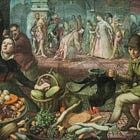

Glad to join this. I have been reading the Gospels each morning for a while now. Great way to start my day.
p.s. I am using the Ignatius Catholic Study Bible.
We should have a place for where we can talk about what we read or learned. Chat maybe? Not trying to add more to your plate though, haha!